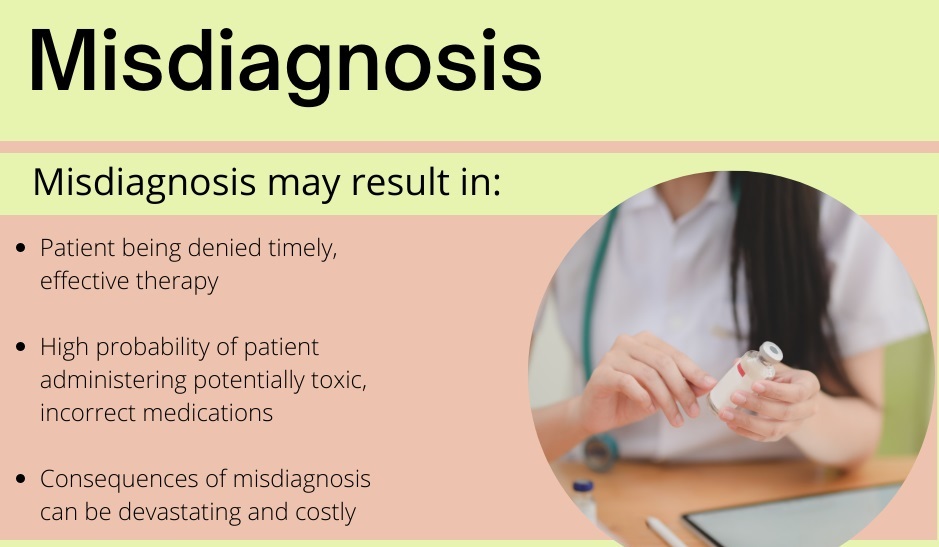Have you been diagnosed with a chronic condition and do not know who to approach? Are you bothered about no measurable improvement in your symptoms?
Misdiagnosis is a common concern in most clinical and healthcare settings. Physicians may not always accurately diagnose patients, leading to serious medical complications, injury, or even death.
A Story of Breast Cancer Misdiagnosis:
Consider the case of the 43-years-old woman who had a left breast lump when she first visited her general practitioner. Her case indicates why the steps taken after breast cancer can influence the outcome. Although her GP referred her to the local hospital and took a mammogram, her breast cancer was misdiagnosed and she was discharged. Six months later, the lump grew bigger. A mammogram and ultrasound, followed by a needle core biopsy, led to a breast cancer diagnosis with vascular invasion. Her case indicates one of the most common breast cancer mistakes.
A more rigorous treatment ensued and the woman had to sustain a mastectomy, chemotherapy, and radiotherapy. She developed liver metastases and had to go through painful chemotherapy. Despite the elaborate treatment, she passed away just two and a half years after her breast cancer misdiagnosis. The case demonstrates the need for an early diagnosis and its impact on the reduction of mortality, resource utilization, and better patient outcomes.
What Scientific Literature Says about Misdiagnosis:
Evidence reveals that the nature of misdiagnosis varies in different clinical settings. In some cases, the consequences were less serious, while other cases led to fatal consequences. A misdiagnosis happens with about 1 in every 20 adults in the United States.
A British medical study found that 1 in 3 cases of cancer is initially misdiagnosed. However, more than 60% of cancer specialists believed that the misdiagnosis rate was only 10%. Moreover, every medical malpractice lawsuit was associated with 7.6 patients suffering from the consequences of physician error.
Furthermore, the American Cancer Society statistics indicate that 1 in 8 women is likely to develop breast cancer. 2018 data indicate that 2,66,120 women are predicted to develop the condition, and about 50,000 may die from the disease. A US-based study indicated that only half of the cases were correctly diagnosed, and a third were misdiagnosed as normal. A misdiagnosis resulted in women receiving dangerous treatments such as invasive procedures.
How Complex is a Process of Preventing Misdiagnosis?
In all these cases, the root cause of misdiagnosis was the use of wrong diagnostic criteria, missing a potential symptom, or misunderstanding the presentation of symptoms. A wrong diagnosis resulted in a treatment that failed to address the cause of the underlying problem. That explains the cost incurred in terms of financial losses, loss of lives, suffering, prolonged illness, and injury. A patient may contribute to an accurate diagnosis by asking the right questions and providing enough information about the underlying condition in the form of lab reports, medical history, medication information, and progress charts.
Physicians may also be involved in crucial stages to prevent a misdiagnosis. According to researchers from the Baylor College of Medicine Institute of Medical Education Research Rotterdam, and DeBakey Veterans Affairs Medical Centre, physicians have an opportunity to improve their diagnosis by communicating effectively with their patients.
Further, they may be in the best position to provide an accurate diagnosis by working closely with the care team when results represent complex information. Another important aspect of preventing errors in diagnosis is to form a cooperative relationship with healthcare professionals in the team and clarify responsibilities. Finally, physicians may encourage patients to take notes and provide feedback throughout the diagnosis process.
How KareOptions Can Help You Prevent a Misdiagnosis?
The patient and the physician can contribute to minimizing a misdiagnosis by communicating effectively, relying on informed decisions, and following recommended practices. However, we are dealing with a relatively fragmented health delivery system, where some processes are optimized while others still lack efficiency. An expert authority may help alleviate these concerns to assist patients in getting an accurate diagnosis. Preventing misdiagnosis is a joint effort by patients and physicians and may require the assistance of expert authority to alleviate concerns about effective treatment goals.
At KareOptions, we realize the value of expert medical opinion and consult with highly qualified medical professionals to address your concerns. We work with the most qualified medical experts to provide a range of services for a medical second opinion. Our assigned care managers collect and coordinate reports and our physicians are available online, guiding you through video appointments.
Disclaimer:
“KareOptions does not have any intention to provide specific medical advice, but rather to provide its users and/ or the general public with information to better understand their health. All content (including text, graphics, images, information, etc.) provided herein is for general informational purposes only and is not a substitute for professional medical advice, care, diagnosis, or treatment. KareOptions makes no representation and assumes no responsibility/ liability for the accuracy of the information, advice, diagnosis, treatment provided herein or on its website. NEVER DISREGARD PROFESSIONAL MEDICAL ADVICE OR DELAY IN SEEKING TREATMENT BECAUSE OF SOMETHING YOU HAVE READ IT HERE OR ACCESSED THROUGH THE KAREOPTIONS WEBSITE.”
Related Blogs:
- 7 Situations Where Second Opinion May be Important
- How to prepare yourself before getting a second medical opinion?
- 3 Diagnoses that call for a second medical opinion
- How do you Consult with Doctors using Online Tools?
References
https://www.healthline.com/health/misdiagnosis-stories#Kates-story:-Celiac-disease


